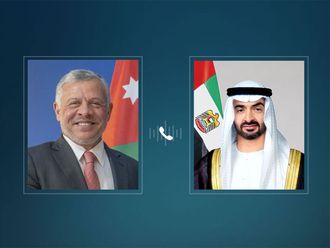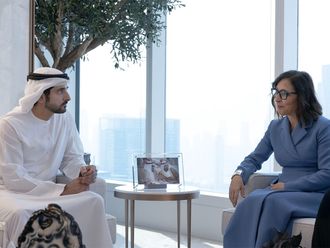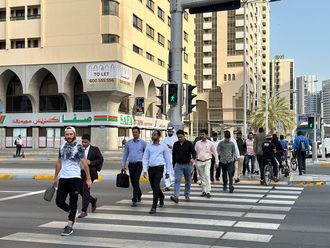Abu Dhabi: Billions of dollars, hundreds of charitable organisations and NGOs as well as thousands of voluntary institutions are devoted to help the poor in the world; yet, their work is mostly based on assumptions which have not been tested and on harmful misconceptions that most of the time give for the sake of giving rather than for the sake of changing life, said Abhijit Banerjee, a professor of economics at the Massachusetts Institute of Technology (MIT).
Bangeree said in his lecture titled: “Smarter giving: maximizing aid impact” which was delivered in the presence of General Shaikh Mohammad Bin Zayed Al Nahyan, Crown Prince of Abu Dhabi and Deputy Supreme Commander of the UAE Armed Forces, that he has pioneered the use of randomised control trials in developed economics.
“We carried out experiments over 15 years in Chile, India, Kenya and Indonesia. The results showed us new aspects of the conduct of poor people, their needs, and how aid or financial investment would impact their lives,” said Professor Banerjee at Majlis Mohammad Bin Zayed on Monday.
Professor Banerjee addressed the question “What works best in terms of aid?”
“We should work on changing lives of the poor rather than their consumption to meet their daily needs,” explained Professor Banerjee.
He said: “An increasingly influential view these days argues that foreign aid in particular and outside interventions more generally, do little good and perhaps even some harm. People need to pull themselves up by their boot strings. While there is certainly evidence of the misuse of aid, a lot of these interventions fail because they were ill-thought out, inappropriate or driven by ideology.”
Banerjee discussed examples that illustrate how research contributes to people’s understanding of the lives of the poor by citing examples from Udaipur in Rajasthan, India.
“Only 1 per cent of children were fully immunised. Anecdotal reasons for this were that the local people held traditional beliefs that made them distrustful and superstitious of immunisation,” he explained.
The other example he cited was that “the poor don’t want to be entrepreneurs” because the poor are entrepreneurs due to lack of choice and not because of inherent entrepreneurial ability.
“Micro-credit does not discernibly increase households’ income. Television is more important than food. Increasing poor families’ incomes does not necessarily improve nutrition,” Professor Banerjee remarked.
Making aid work
To make aid works, this requires careful and honest use of evidence. Aid giving is all too often based on “common sense” or intuition, both of which can be very misleading. The available evidence is either ignored or dismissed with predictable consequences.
“Experiment; try out new solutions and think out of the box will help achieve good results. But always remember to collect the right data. And to look at the data with care and an open mind to achieve those best results,” added Professor Banerjee.
He highlighted the importance of respect the humanity of the poor.
“Don’t assume that the poor will behave the way you will want them to. Like everyone else they want to live life as fully as they can and that does not always mean doing what we think their interest ought to be. Pay attention to what they are trying to tell you, both through their words and their behaviour,” concluded Professor Banerjee.
The lecture was attended by Shaikhs, ministers, senior government officials, ambassadors and other notables.











